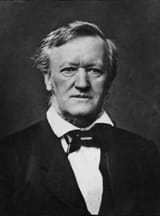>Hugo Wolf was a student at the time of the 1882 Festival, yet still managed to find money for tickets to see Parsifal twice. He emerged overwhelmed: "Colossal – Wagner's most inspired, sublimest creation." He reiterated this view in a postcard from Bayreuth in 1883: "Parsifal is without doubt by far the most beautiful and sublime work in the whole field of Art."
>Gustav Mahler was also present in 1883 and he wrote to a friend; "I can hardly describe my present state to you. When I came out of the Festspielhaus, completely spellbound, I understood that the greatest and most painful revelation had just been made to me, and that I would carry it unspoiled for the rest of my life."
>Max Reger simply noted that "When I first heard Parsifal at Bayreuth I was fifteen. I cried for two weeks and then became a musician."
>Alban Berg described Parsifal in 1909 as "magnificent, overwhelming,"
>and Jean Sibelius, visiting the Festival in 1894 said "Nothing in the world has made so overwhelming an impression on me. All my innermost heart-strings throbbed... I cannot begin to tell you how Parsifal has transported me. Everything I do seems so cold and feeble by its side.That is really something."
>Claude Debussy thought the characters and plot ludicrous, but nevertheless in 1903 wrote that musically it was "Incomparable and bewildering, splendid and strong. Parsifal is one of the loveliest monuments of sound ever raised to the serene glory of music."
>He was later to write to Ernest Chausson that he had deleted a scene he had just written for his own opera Pelléas et Melisande because he had discovered in the music for it 'the ghost of old Klingsor, alias R. Wagner'.
He was simply the greatest. Wagner for all eternity.

